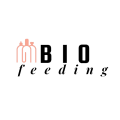Understanding Newborn Bottle Feeding Challenges
Bringing a new baby into the world is exhilarating, but it also brings with it an array of challenges, especially in the early days. One of the primary concerns most new parents face is how to handle newborn bottle feeding. Every baby is different, and what works for one might not work for another, making it a complex task to master.
Navigating the intricacies of baby feeding can be daunting. But don’t worry – it’s a common problem that many parents face. With patience, persistence, and the right resources, it can become a stress-free, even enjoyable, part of your parenting journey. This article explores the common challenges associated with newborn bottle feeding, offering practical solutions to make this essential task easier.
Identifying the Challenges
First and foremost, let’s break down some of the key challenges parents typically encounter when bottle feeding a newborn:
- Refusing the Bottle: It is not uncommon for some babies to stubbornly refuse the bottle, significantly if they have been exclusively breastfed.
- Overfeeding: Without adequate knowledge, it’s easy to misinterpret a baby’s signals and overfeed them, leading to potential health issues.
- Gas and Colic: Feeding positions and types of bottles can contribute to excess gas formation, causing discomfort and prolonged crying.
Understanding these challenges is the first step towards addressing them. By learning more about newborn bottle feeding and seeking expert advice, you can tackle these hurdles head-on.
Overcoming Bottle Feeding Challenges
With a comprehensive understanding of the challenges, here are the practical ways to handle them:
- Patience is key: If your baby refuses the bottle, remember that this is a new experience for them. Give them time to adjust, try different bottle types, or even introduce the bottle when the baby is not extremely hungry.
- Understand your baby’s hunger cues: To avoid overfeeding, recognize your baby’s hunger signals. Crying is a late indication of hunger, look out for signs like increased alertness or mouthing.
- Leverage feeding techniques to reduce gas: Try to keep your baby upright while feeding, ensure the bottle’s nipple is full of milk, not air, and burp your baby during and after feeding to minimize gas problems.
Do remember that persistence and consistency are vital in managing these newborn feeding challenges. And don’t hesitate to seek professional help if the problems persist.
Reinforcing a Consistent Feeding Routine
Once you have a grasp on the fundamental issues, creating a consistent feeding routine can further ease the process. Night feedings often require special attention. Understand that these nighttime feeds can disrupt sleep patterns, but they play a crucial role in your newborn’s growth and development. Remember – support is only a step away, and you are not alone in this journey.
The Importance of Bottle Types and Formula Selection
Your choice of bottle types and formula also plays a significant role in newborn bottle feeding. There are so many products to choose from on the market, but not all will be suited to your baby’s specific needs. Bottle types, ranging from those with anti-colic systems, different flow rates, nipple shapes, and materials, need to be selected based on your baby’s preference and comfort.
When it comes to baby formula, there is a myriad of options to choose from. Picking the right formula for your baby can seem overwhelming, but it doesn’t have to be. Formula can be primarily composed of cow’s milk, soy-based, lactose-free, or specialized for infants with specific needs. Be sure to explore all the details carefully, consider any known food allergies or sensitivities, and perhaps most importantly, consult a healthcare provider or lactation consultant for expert advice and indeed, a solution.
Tackle Possible Health Issues That Influence Bottle Feeding
Some infants might have difficulties with feeding due to medical conditions, for instance, tongue-tie. A condition known medically as ankyloglossia, can affect a baby’s ability to suck effectively, leading to feeding difficulties and maternal nipple pain. If these difficulties persist, a detailed clinical assessment with a lactation consultant, pediatrician, or appropriately trained health professional is recommended.
Also, acid reflux or gastroesophageal reflux disease (GERD) can make feeding challenging, causing repeated vomiting, chronic crying, coughing, and other respiratory problems in babies. GERD usually resolves on its own as babies mature, but if symptoms persist beyond 12 months of age, medical intervention may be necessary.
Rounding Out Your Support System
Lastly, remember that newborn bottle feeding is a journey, one that may alter and adjust as your baby grows, and as you become more comfortable and knowledgeable. Surround yourself with positive sources of support – partners, family, fellow parents, or communities of parents navigating similar experiences. This support can provide shared wisdom and much-needed encouragement, as well as reassurance that you are not alone in navigating these new waters.
You should also tap into the wealth of professional help available, such as healthcare providers specializing in feeding issues. Remember, professional advice and interventions can be indispensable in swiftly resolving any severe or persistent bottle feeding problems.
As stated earlier, bottle feeding your newborn might pose some challenges, but overcoming these hurdles is part of the unique bonding experience between parent and child. It offers an opportunity to cater to your baby’s needs while fulfilling one of your critical roles in their nurturing. So, embrace the process, equip yourself with the necessary knowledge, exercise patience, and keep looking forward to those special, quiet times of feeding your baby.
Meta Title and Description

